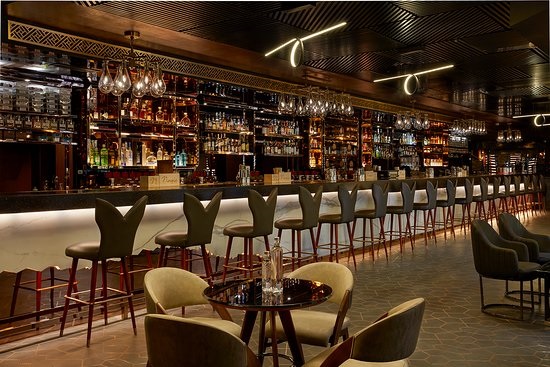Delhi govt's new excise policy allows bars to operate till 3 am
The Delhi government on Monday announced the new excise policy for 2021-22, which allows bars in hotels, clubs and restaurants in the national capital to operate till 3 am except those licensees who have been given license to operate round the clock service of liquor.

New Delhi: The Delhi government on Monday announced the new excise policy for 2021-22, which allows bars in hotels, clubs and restaurants in the national capital to operate till 3 am except those licensees who have been given license to operate round the clock service of liquor. The government also allowed hotels, clubs and restaurants in Delhi to serve Indian or foreign liquor in any area within the licensed premises, including the terrace, balcony or lower area, so long as the liquor serving is screened off from public view.
According to the 2021-22 excise policy, every liquor outlet in the city will provide a walk-in experience to its customers who will have multiple choices of brands, and the entire selection and sale process will be completed within the vend premise. Along with this, the policy document states that retail sales in the form of L-7V (Indian and Foreign Liquor) can be opened in any market, mall, commercial streets and areas, local shopping complex and other places.
Under the new excise system, people of Delhi will also be able to fill their bottles or 'growlers' with freshly brewed beer from any microbrewery in the city. The policy allows microbreweries to supply draught beer to bars.
"Draught beer shall be allowed to be taken away in bottles or 'growlers'. Microbrewery shall also be allowed to supply to other bars and restaurants that have a license to serve liquor," the policy document stated. Such retail vends that will be air-conditioned will have glass doors. Customers will not be allowed to crowd outside a vend or the pavement and buy through the counter, it stated.
Also Read |
India is not in community transmission: ICMR
The licensee will have to install CCTV cameras inside and outside the vend, apart from adequate security arrangements as the vend itself is responsible for the law and order and security around the premises. In case the shop proves a nuisance for the neighbourhood and a complaint is received by the Delhi government, the license of the vend is likely to be cancelled.
Bars have also been permitted to play any type of entertainment or performance, including music and musical instruments, dancing or singing by professionals or deejays, live bands and karaoke on its premises. There will be no restriction on the shelf life of opened liquor bottles at the bar counter.
In order to promote startups, the new policy recommends pricing norms for the registration of various brands of liquor in the national capital and sales outside Delhi. The new norm will now depend on the price of a brand of liquor and its sales figures outside the national capital.
The number of retail liquor vends will be 849 in the city, including five super-premium retail vends that will have a minimum carpet area of 2,500 square feet.
As per the new policy, Super Premium Vends, which will set up a tasting room within the premise, can sell products only above Rs 200 MRP for beer and above Rs 1,000 Retail price for all other spirits, including but not limited to Whiskey, Gin, Vodka, Brandy, etc.
Also Read |
Social distancing varies by income, double burden for lower-income communities: Study
"Super Premium Vends will need to stock at least 50 imported (B10) liquor brands including wines (BECRS) etc. brands in the store," the policy stated.
The government has also introduced a new license L-38 for banquet halls, party places, farmhouses, motels, wedding/party/event venues with permission to serve Indian and Foreign liquor in all the parties hosted at their premises on payment of a one-time annual fee.
According to the Excise Policy, 272 municipal wards are divided into 30 zones in 68 assembly constituencies of Delhi. Each zone will have a maximum of 27 retailers. On average, there will be three retail liquor vendors in each ward. (ANI)
 Dynamite News
Dynamite News 